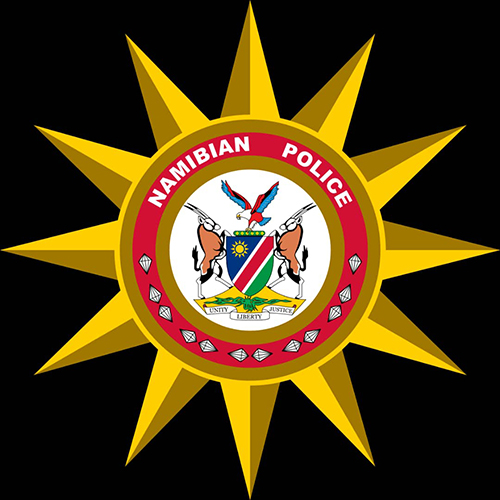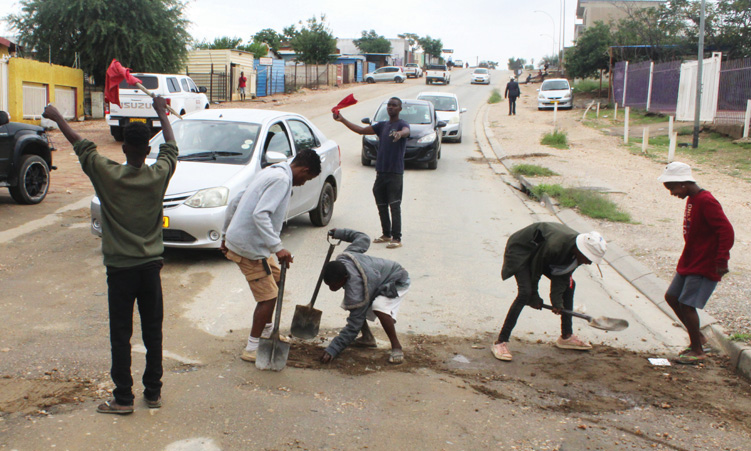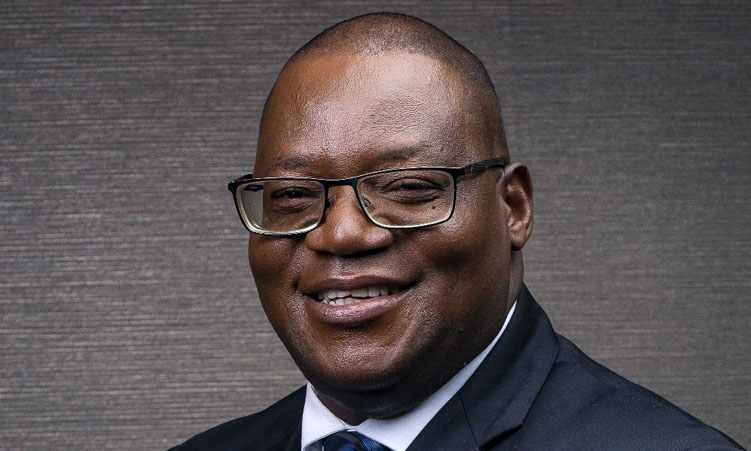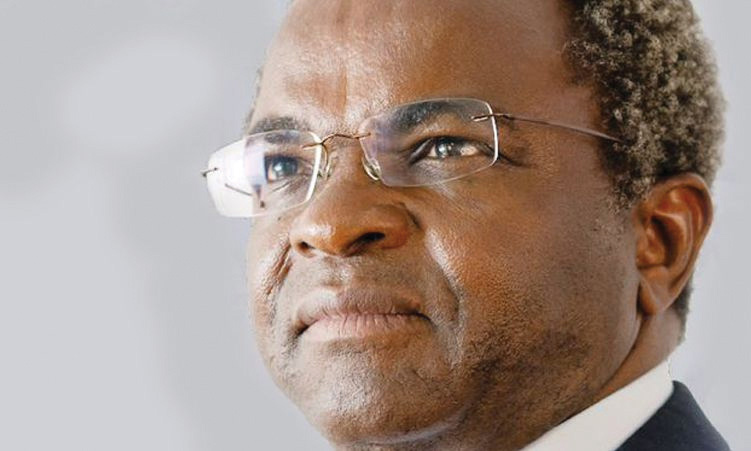THE case in which one of Namibia’s most senior judges, former Supreme Court Judge of Appeal Pio Teek, was acquitted on child rape and abduction charges is set to be revived.
In terms of an order given in the Supreme Court yesterday by three Judges of Appeal of South Africa’s Supreme Court of Appeal, the State will now be allowed to be heard in the Supreme Court in its quest to at least have Teek put on his defence on charges he faced in his trial in the High Court two years ago. The order, given by South African Judges of Appeal Piet Streicher, Kenneth Mthiyane and Fritz Brand in their capacity as Acting Judges of Appeal of Namibia’s Supreme Court, is the first victory that the prosecution has tasted since the start of Teek’s trial before South African Judge Ronnie Bosielo in April 2006.The trial ended on July 28 2006 with Judge Bosielo acquitting Teek (61) at the close of the State’s case on all charges.In a judgement that was severely critical of the Police’s handling of the investigation of the case against Teek, Judge Bosielo ruled that in his view the evidence against Teek was so poor, contradictory and tainted by shortcomings in the Police investigation that it was not necessary for the former Supreme Court Judge of Appeal and High Court Judge President to even present the case in his defence to the court before a verdict was to be delivered.An attempt by the State to be given leave to appeal against that ruling similarly ended in a defeat in October last year.Judge Bosielo again ruled against the prosecution by refusing to grant it leave to appeal to the Supreme Court against his earlier ruling.The State then petitioned the Chief Justice to be given leave to appeal.The Supreme Court yesterday gave its answer on that request.Judges Streicher, Mthiyane and Brand ordered that the State was given leave to appeal to the Supreme Court against the discharge that Judge Bosielo granted to Teek on six of the eight charges that he had faced at his trial.The eight charges consisted of two counts of abduction, two counts of rape, two charges of using “means to stupefy a female for unlawful carnal intercourse”, and two counts of committing or attempting to commit an immoral or indecent act with a child under the age of 16, as well as various alternative charges under those main counts.In their decision yesterday, the three Judges allowed the State to appeal to the Supreme Court against Teek’s discharge on all charges, except one of the counts of committing or attempting to commit an immoral or indecent act with a child under the age of 16 and one of the charges of giving a female liquor with the intention of drugging her for sexual intercourse.If the State eventually succeeds with its appeal against Teek’s discharge, his trial will have to continue again before Judge Bosielo, who will then have to hand down his verdict after hearing evidence in Teek’s defence, if Teek decides to present such evidence to the court before closing the case in his defence.Teek was on trial on charges that he had abducted two girls, at the time aged nine and ten, from the vicinity of the Katutura Single Quarters to his home in the Brakwater area north of Windhoek on the evening of January 28 2005.He denied those charges, and also denied that he had given the children alcoholic drinks at his house and that he had sexually molested them there.According to a written plea explanation that his defence lawyers handed to the court at the start of the trial, Teek had merely taken the children to his house with the intention of giving them food, after he had found them looking dirty and neglected near the Katutura Single Quarters and after they had complained to him of being hungry.Teek claimed that he fell asleep at his house as a result of medication that was making him drowsy.The two children slept over at his house, and he took them back to Katutura the next morning, he stated, denying that he at any stage touched the girls or gave them any alcohol to drink.The charges against Teek brought his judicial career to a sudden end.Following his arrest he was suspended from his position as Supreme Court Judge of Appeal, before he retired from his position in mid-October 2005.The order, given by South African Judges of Appeal Piet Streicher, Kenneth Mthiyane and Fritz Brand in their capacity as Acting Judges of Appeal of Namibia’s Supreme Court, is the first victory that the prosecution has tasted since the start of Teek’s trial before South African Judge Ronnie Bosielo in April 2006.The trial ended on July 28 2006 with Judge Bosielo acquitting Teek (61) at the close of the State’s case on all charges.In a judgement that was severely critical of the Police’s handling of the investigation of the case against Teek, Judge Bosielo ruled that in his view the evidence against Teek was so poor, contradictory and tainted by shortcomings in the Police investigation that it was not necessary for the former Supreme Court Judge of Appeal and High Court Judge President to even present the case in his defence to the court before a verdict was to be delivered.An attempt by the State to be given leave to appeal against that ruling similarly ended in a defeat in October last year.Judge Bosielo again ruled against the prosecution by refusing to grant it leave to appeal to the Supreme Court against his earlier ruling.The State then petitioned the Chief Justice to be given leave to appeal.The Supreme Court yesterday gave its answer on that request.Judges Streicher, Mthiyane and Brand ordered that the State was given leave to appeal to the Supreme Court against the discharge that Judge Bosielo granted to Teek on six of the eight charges that he had faced at his trial.The eight charges consisted of two counts of abduction, two counts of rape, two charges of using “means to stupefy a female for unlawful carnal intercourse”, and two counts of committing or attempting to commit an immoral or indecent act with a child under the age of 16, as well as various alternative charges under those main counts.In their decision yesterday, the three Judges allowed the State to appeal to the Supreme Court against Teek’s discharge on all charges, except one of the counts of committing or attempting to commit an immoral or indecent act with a child under the age of 16 and one of the charges of giving a female liquor with the intention of drugging her for sexual intercourse.If the State eventually succeeds with its appeal against Teek’s discharge, his trial will have to continue again before Judge Bosielo, who will then have to hand down his verdict after hearing evidence in Teek’s defence, if Teek decides to present such evidence to the court before closing the case in his defence.Teek was on trial on charges that he had abducted two girls, at the time aged nine and ten, from the vicinity of the Katutura Single Quarters to his home in the Brakwater area north of Windhoek on the evening of January 28 2005.He denied those charges, and also denied that he had given the children alcoholic drinks at his house and that he had sexually molested them there.According to a written plea explanation that his defence lawyers handed to the court at the start of the trial, Teek had merely taken the children to his house with the intention of giving them food, after he had found them looking dirty and neglected near the Katutura Single Quarters and after they had complained to him of being hungry.Teek claimed that he fell asleep at his house as a result of medication that was making him drowsy.The two children slept over at his house, and he took them back to Katutura the next morning, he stated, denying that he at any stage touched the girls or gave them any alcohol to drink.The charges against Teek brought his judicial career to a sudden end.Following his arrest he was suspended from his position as Supreme Court Judge of Appeal, before he retired from his position in mid-October 2005.
Stay informed with The Namibian – your source for credible journalism. Get in-depth reporting and opinions for
only N$85 a month. Invest in journalism, invest in democracy –
Subscribe Now!










